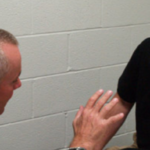False Accusations of a Crime – What You Need to Know
Being accused of a crime when you are innocent is one of the most agonizing and life-disrupting experiences a person can go through.
Falsely Accused of a Crime
Most people have never faced criminal accusations. They would be completely unsure about what to do if someone accused them of something illegal. A person falsely accused of a crime may believe they are presumed guilty until proven innocent.
If you find out that you have been or are about to be wrongfully charged with a crime, there are several things you can do immediately to protect yourself. First, do not speak to anyone other than a lawyer. The government can’t make your lawyer talk, so the attorney doesn’t risk the government calling them as a witness to testify against you, even if they speak on your behalf. Remember, anything you say “can and will be used against you.” Whatever you do, NEVER talk to the police under any circumstances without an attorney present and protecting you. They are not your friends and are not there to help you; their only function is to build a case against you.
Secondly, do not wait to see what happens or if you will be charged, be proactive. In many cases, a good defense lawyer can prevent you from being charged if they act quickly on your behalf. In those cases where charges are unavoidable, a lawyer might be able to convince the police or prosecutor to charge a less serious offense. If a lawyer can persuasively demonstrate that you are falsely accused of a crime, they might be able to help you avoid charges altogether.
You will not have the option of speaking to a court-appointed attorney before the government files charges. By the time a court-appointed attorney is appointed, many critical events will have already occurred. Immediately retaining an experienced lawyer may help prevent you from ever going to court.

Do not talk to the police under any circumstances.
You should not talk to the police without a lawyer. The police may interpret something you say or do in a way you did not intend. Things you believe will help establish your innocence may land you in a jail cell awaiting a bail hearing. The police will twist anything you say to use it against you. For example, if you say you’re innocent, the police might say you were nervous, evasive, didn’t make eye contact, or acted or spoke suspiciously. You might be falsely accused of a crime because of a miscommunication or misunderstanding.
A privately retained, reputable attorney with an outstanding reputation with the police, such as the attorneys at LEWIS & DICKSTEIN, P.L.L.C., will be able to place themselves between you and the police and fend off the attack. And make no mistake; it is an attack. Contacting citizens and insinuating they have committed a crime is not something the police take lightly. If they have contacted you, you are in grave danger, and you need to take steps to help yourself immediately.

Can a retained attorney help me before the police file charges?
Yes, absolutely. You cannot do things that your attorney can. For instance, your attorney speaks on your behalf, and what they say cannot be used against you. An attorney can also request that the police notify them if they file a charge. By doing this, the lawyer can walk you into court if there is a warrant and prevent you from being arrested at home, at work, or while driving.
If you hire the right attorney, they will sit down with you and gather information and witnesses to present to the police before they file charges. If you are falsely accused of a crime, your attorney will know what information you should and should not give to the police. Your attorney may be able to get the police not to seek a warrant for prosecution. A skilled lawyer can take many steps to protect you.
What can my attorney do if I’m falsely charged with a crime?
If the police have given you no warning that an investigation has been ongoing, you have had no reason to retain an attorney. The officers might find and arrest you wherever you are. The police sometimes arrest someone without warning to catch them emotionally off guard and without a lawyer. They believe they will get a shot at asking you questions without an attorney present and while you are in a weakened, highly emotional state. If you have a lawyer, they can take steps to protect you from being falsely accused of a crime.
If the police arrest you without warning, you should immediately tell them that you demand to speak to an attorney. It will be your natural impulse to try to explain that the police are making a mistake. Please don’t do it. Let your attorney do the talking. Your attorney is a professional, just as the police are professionals. The defense attorneys at LEWIS & DICKSTEIN, P.L.L.C. have handled thousands of cases and are experts at dealing with the police before or after a charge is filed.
How can my attorney prove I’ve been falsely charged?
Your privately retained attorney is familiar with the elements of a crime. They know what the prosecutor has to prove. They know what to say and what not to say. Your attorney knows how to get a hold of the evidence in possession of the police and prosecutor. A skilled pre-charge defense attorney can assess alibi witnesses, physical evidence, and your account of things if you are falsely accused of a crime. If you have been falsely charged, an astute, passionate, and retained attorney may be able to dismantle the prosecution’s case logically and legally.

Criminal Defense Attorneys Representing the Wrongfully Accused
A top retained attorney is essential to protecting yourself and vindicating you if you have been falsely charged. A good lawyer will not judge you. Your attorney will be your advisor, counselor, and best defender in the face of a false charge. The dedicated, experienced, and zealous defense attorneys at LEWIS & DICKSTEIN, P.L.L.C. have successfully represented thousands of clients in Michigan. We have a well-earned reputation for providing excellent, high-quality, aggressive representation, while showing empathy and care for each client.
Call us today at (248) 263-6800 for a free consultation or complete an online Request for Assistance Form. We will contact you promptly and find a way to help you.












